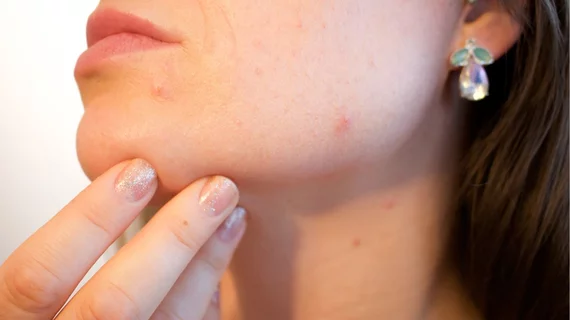Dermatology researchers: AI tools soon to be ‘tightly integrated into daily clinical practice’
Healthcare AI watchers would be unwise to overlook dermatology, as it is a medical specialty “at the precipice of an artificial intelligence revolution.”
Those are the words of dermatological researchers at UCLA who reviewed studies published on the subject over the past five years.
Along with aggregating projects that applied the latest AI advances to diagnosis and treatment, they looked for work with good potential for adoption by clinicians.
The team’s report is running online ahead of print as a letter to the editor of the Journal of the American Academy of Dermatology.
Lead author Ernest Lee, MD, PhD, and colleagues found many studies in the recent literature focused on image analysis and classification of skin lesions—no surprise since digital photography is by now ubiquitous in the field.
Here they comment that machine learning is “a natural fit for translation into dermatology because dermatology is a specialty that is heavily reliant on visual evaluation and pattern recognition.”
However, the researchers also found machine learning is being applied to everything from studying the genetic basis of skin diseases to identifying associations between comorbidities, and to designing and predicting patient responses to drug therapies.
The simultaneous rise of machine learning and next-generation sequencing in particular “represents a golden opportunity to advance precision dermatology, and multidisciplinary collaborations between machine learning experts, biologists and dermatologists will be required to expand the scope of this research,” Lee and co-authors write.
They also acknowledge widespread concerns about AI across medicine. Most notable among these are how to deal with ambiguities in algorithmic conclusions—the “black box” problem—and the big worry in every AI-forward specialty:
“[T]here is a prevailing fear among physicians that machines will largely replace clinicians in dermatology, as well as in radiology and pathology,” Lee et al. write. “It is our view that machine learning will not replace dermatologists. Rather, these tools will enable dermatologists to provide a higher quality of care to their patients.”
“In fact,” they conclude, “we believe that machine learning tools, such as downloadable local programs on personal computers, open-source online webservers, or mobile applications on smartphones, will be tightly integrated into the daily clinical practice of the dermatologist in the near future.”

